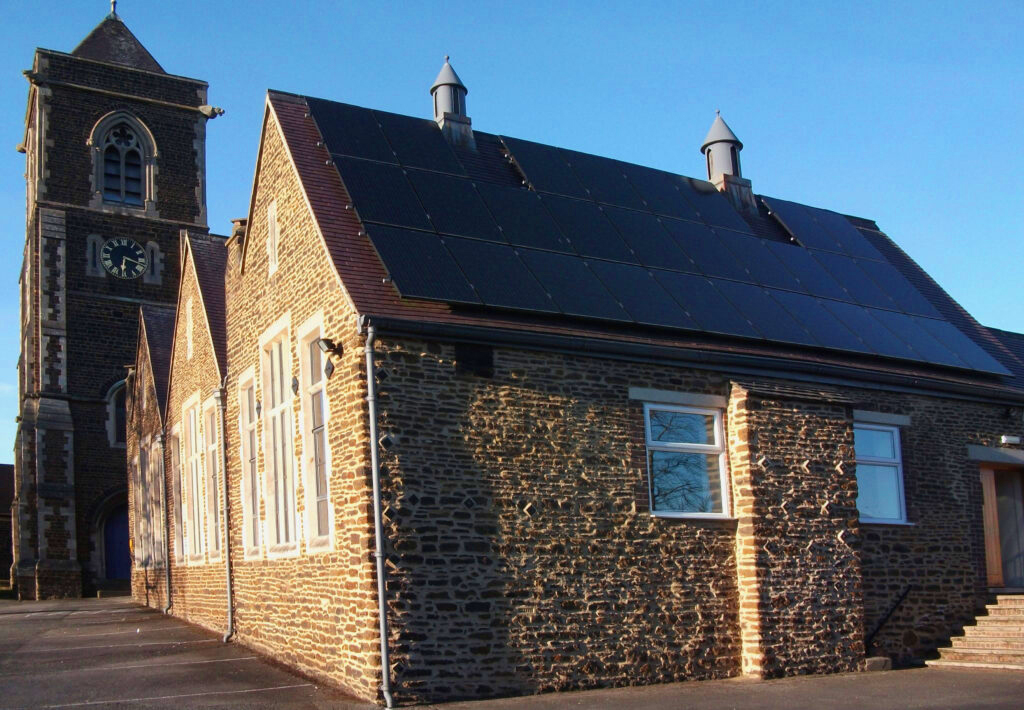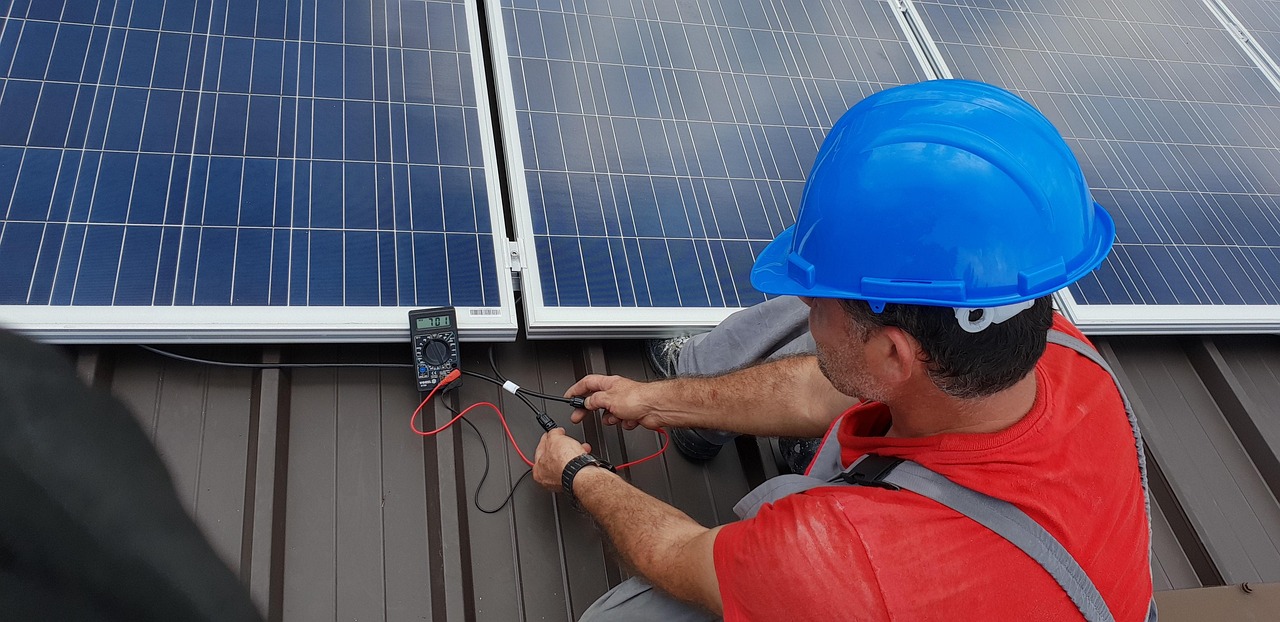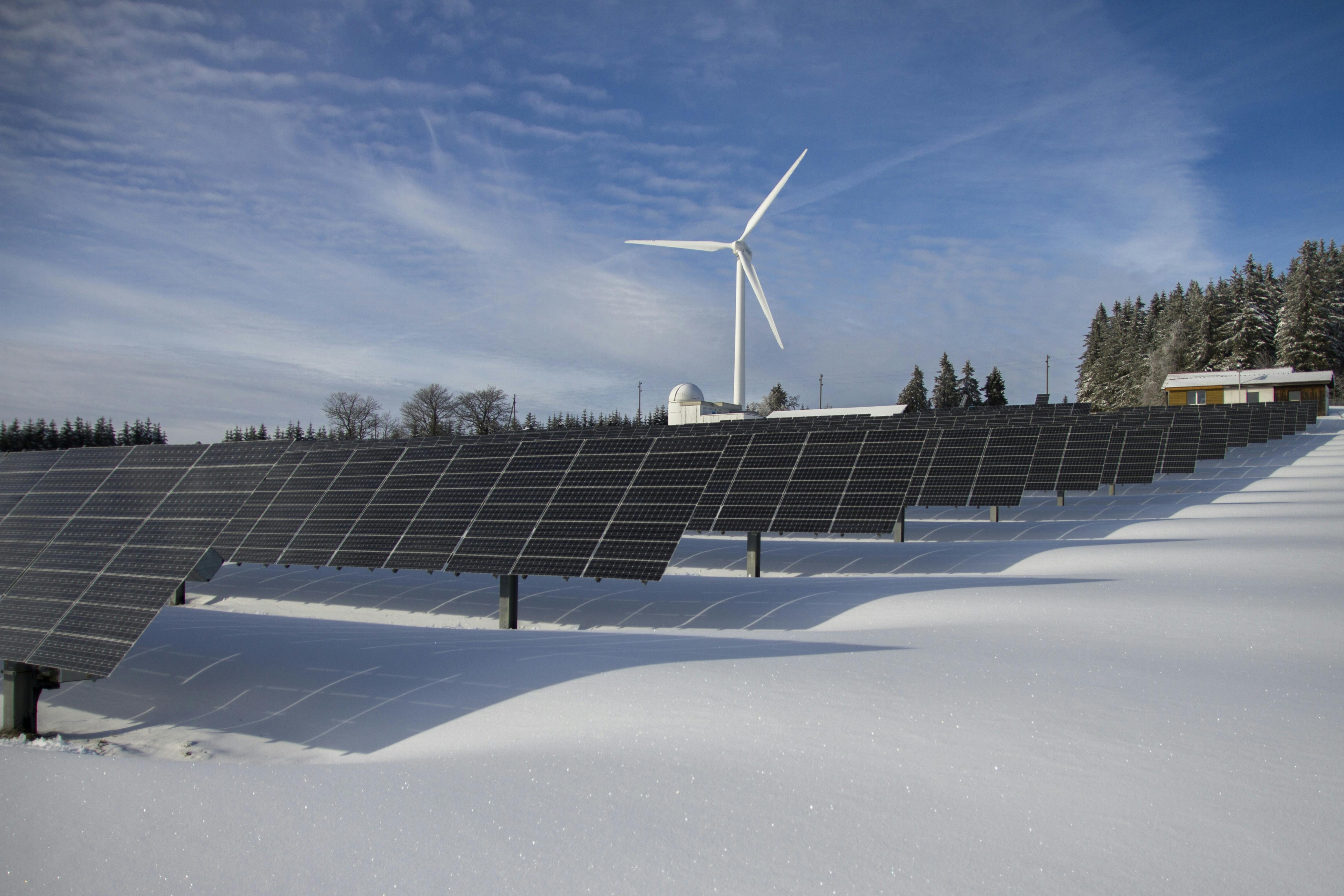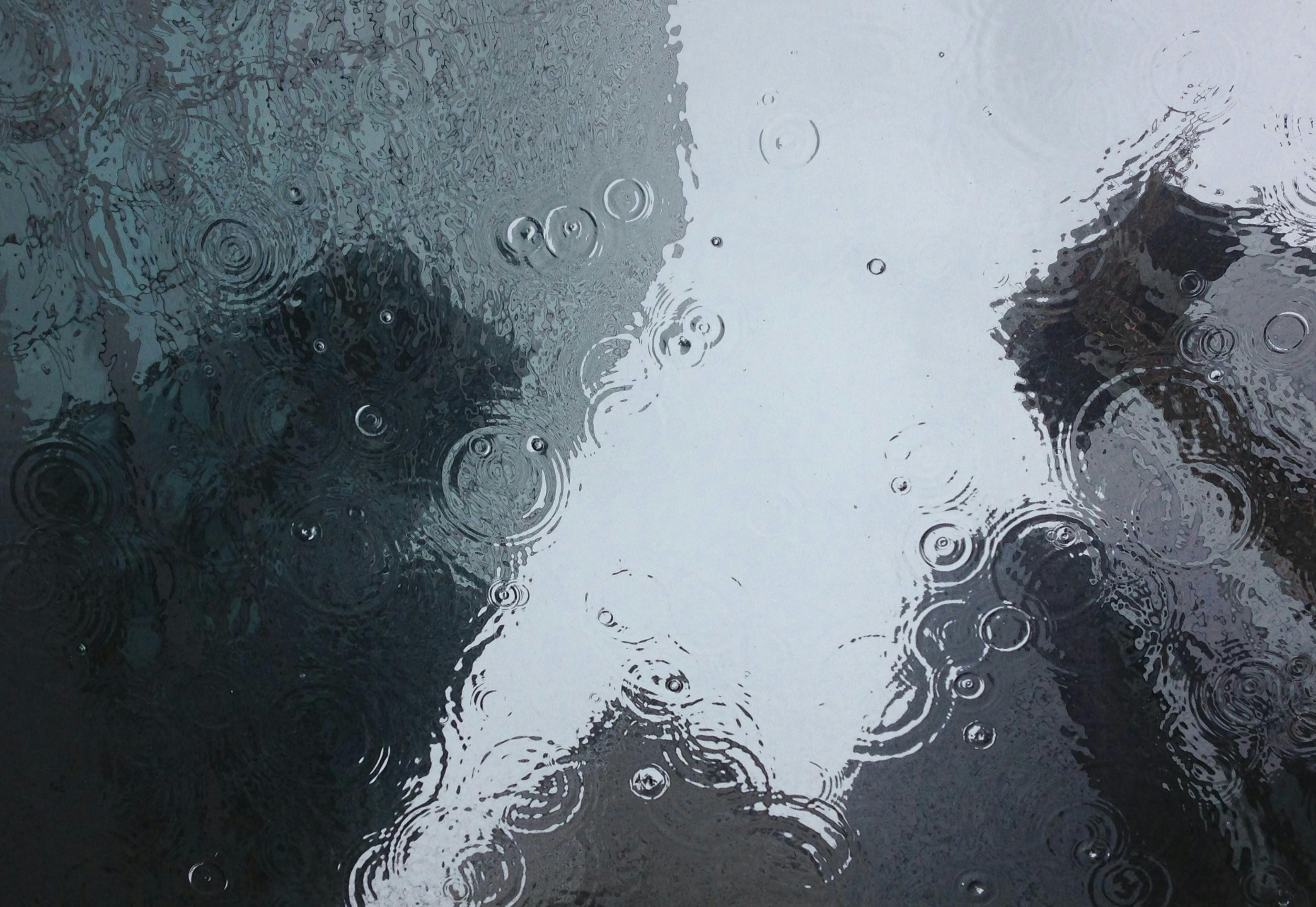The Best Inverters for Solar Panels
Learn about the best inverter for solar panels and options available at MakeMyHouseGreen. Use our solar panel calculator.

If you're planning to invest in a solar panel system, selecting the right inverter is crucial for optimal performance. The inverter is the heart of your solar system, converting the direct current (DC) produced by your solar panels into alternating current (AC), which can be used to power your home.
In this guide, we’ll explore three types of inverters available and help you find the best inverter for your solar panel setup. As well as the range of solar inverters we offer at MakeMyHouseGreen.
Key Solar Takeaways:
- Hybrid inverters offer flexibility and work with battery storage, ideal for homes planning to store solar energy.
- Microinverters maximise efficiency by letting each panel operate independently, perfect for shaded or irregular roofs.
- String inverters are cost-effective and reliable for homes with consistent sunlight and simple roof layouts.
Don’t forget to use our solar panel calculator today for an estimated price of your solar panel installation. Our expert team are on hand to offer advice on the best solar panel inverter and set-up for your home.
Which is the Best Inverter for your Solar Panel: 3 Types
There are several types of solar inverters to choose from, each suited to different solar panel configurations and needs. Understanding the differences between them will help you select the best inverter for your solar panel system.
1. Hybrid Inverters
Hybrid inverters are versatile devices that not only convert DC to AC but also manage the flow of energy between your solar panels, battery storage, and the grid. They are perfect if you plan to add battery storage to your solar setup.
Pros:
- Allows for energy storage, giving you the option to use solar power at night or during outages.
- Can help maximise self-consumption of solar energy.
- Often compatible with smart home systems for enhanced energy management.
Cons:
- Higher initial cost compared to string inverters.
- Requires a compatible battery storage system.
2. Microinverters
Microinverters are small, individual inverters installed on each solar panel. They convert DC to AC at the panel level, allowing each panel to operate independently. This is particularly beneficial for roofs with shading issues or complex shapes.
Pros:
- Maximises energy output by allowing each panel to perform independently.
- Ideal for installations where shading varies across different parts of the roof.
- Easier to expand the solar system in the future by adding more panels.
Cons:
- Higher upfront cost as each panel requires its own inverter.
- More complex installation process.
3. String Inverters
String inverters are panels that are connected in series (or "strings") and the inverter converts the combined DC output into AC.
Pros:
- More cost-effective than microinverters since only one inverter is needed per string of panels.
- Easier to maintain and replace, as there's only one central unit to monitor.
Cons:
- Performance of the entire string can be affected if one panel is shaded or underperforming.
- Less flexibility in system design compared to microinverters.
Learn more about the solar kits we have available at MakeMyHouseGreen today.

Our Range of Solar Panel Inverters at MakeMyHouseGreen
The quality and efficiency of your solar inverter directly impact the overall performance of your solar system. That’s why we offer a range of high-quality solar panel inverters from trusted brands known for their reliability, efficiency, and advanced features. Here’s an overview of the inverter brands we provide at MakeMyHouseGreen:
1. Fox ESS Inverters
Fox ESS inverters bring cutting-edge technology and advanced energy management capabilities to your solar system. Known for their sleek design and superior performance, Fox ESS inverters are engineered to deliver high efficiency and robust power output. They come equipped with innovative features such as hybrid capabilities, allowing integration with battery storage systems, which makes them ideal for homeowners looking to maximise their energy independence.
2. Duracell Inverters
Duracell, a brand synonymous with reliability in the energy sector, offers robust solar inverters designed to seamlessly integrate with various solar panel systems. Duracell inverters are known for their efficiency and reliability, providing consistent performance even in challenging weather conditions. With a focus on quality and durability, Duracell inverters are a great choice for those looking to maximise the efficiency and lifespan of their solar installation.
3. Solis Inverters
Solis Inverters are known for their exceptional reliability and high efficiency. They offer a range of string inverters that are suitable for both residential and commercial installations. With a user-friendly interface and advanced features like remote monitoring, Solis inverters are designed to optimise the performance of your solar panel system. They are also known for their durability, making them an excellent long-term investment.
4. Enphase Inverters
Enphase is a leader in microinverter technology, offering innovative solutions that convert DC to AC at the individual panel level. This setup allows each panel to operate independently, which is ideal for installations where shading or varying panel orientations might impact performance. Enphase microinverters are known for their reliability, easy installation, and superior monitoring capabilities, making them a popular choice for residential solar systems that require optimal efficiency and flexibility.
5. Sun Synk Inverters
Sun Synk inverters are highly regarded for their versatility and ability to manage complex solar systems. They offer hybrid inverters that can handle solar power, battery storage, and grid interaction all in one unit. Sun Synk inverters are perfect for those who want to optimise their energy usage and have the flexibility to store or sell excess energy back to the grid. With their advanced monitoring capabilities, you can keep a close eye on your system’s performance at all times.

Key Features to Look for in the Best Inverter for Solar Panels
When choosing the best inverter for your solar panels, consider the following factors:
1. Efficiency Ratings
Inverter efficiency is crucial as it determines how much of the DC power from your panels is converted into usable AC power. Look for inverters with efficiency ratings between 95% to 98%.
2. Power Rating
The power rating of your inverter should closely match the peak power output of your solar array. If you're generating 5kW and you only have a 3kW inverter you'll be losing out on your generation whilst risking damage. The power rating of your inverter will also impact the speed at which your batteries can discharge to your house when you need it.
3. Compatibility with Solar Panels
Ensure the inverter is compatible with the voltage and current characteristics of your solar panels. For instance, if your panels produce a maximum voltage of 350V, your inverter should handle this safely without causing any efficiency losses.
4. Monitoring Capabilities
Modern inverters often come with built-in monitoring systems that allow you to track the performance of your solar system in real-time. Features such as Wi-Fi connectivity enable remote monitoring via smartphone apps, providing insights into energy generation, inverter efficiency, and potential issues.
5. Durability and Warranty
Solar inverters are typically installed outdoors or in less protected environments, so durability is key. Look for inverters with robust warranties, usually 5 to 12 years, and ensure they are designed to withstand the local weather conditions.
Best Solar Panel Inverters: FAQs
What is a Solar Panel Inverter?
A solar panel inverter is a device that converts the direct current (DC) electricity generated by solar panels into alternating current (AC) electricity, which is the standard form of electrical power used in homes and businesses. Since most household appliances and the electrical grid operate on AC, the inverter is a critical component of any solar power system.
It ensures that the electricity produced by the solar panels is compatible with your home’s electrical system and can be used to power your appliances, or exported to the grid. Additionally, many modern inverters also provide monitoring capabilities, allowing you to track the performance and efficiency of your solar energy system.
Why Do You Need a Solar Inverter?
Solar panels generate DC electricity, which needs to be converted into AC to be compatible with household appliances. This is where solar inverters come into play. The efficiency and functionality of your solar panel system largely depend on the quality of your inverter, making it a critical component of your renewable energy setup.
Are microinverters better than string inverters?
Microinverters can offer better performance in situations where shading or different panel orientations are an issue, as each panel operates independently. However, string inverters are more cost-effective for installations with consistent sunlight and fewer shading concerns. The choice depends on your roof’s characteristics and budget.
How long do solar inverters last?
Solar inverters typically last between 10 to 15 years, though high-quality models may last longer with proper maintenance. Most manufacturers offer warranties ranging from 5 to 12 years, but some premium models may include extended warranties of up to 25 years.
Can I use a hybrid inverter if I don’t have battery storage?
Yes, you can use a hybrid inverter without a battery. Hybrid inverters are designed to manage solar panel power, battery storage, and grid energy. If you don't have a battery, the hybrid inverter will function just like a standard inverter but will allow for easy battery integration in the future if you choose to add storage.
How does inverter efficiency affect my solar system?
The efficiency of your inverter impacts how much of the solar energy generated by your panels is converted into usable electricity. A high-efficiency inverter (usually between 95% to 98%) ensures minimal energy loss during the conversion from DC to AC, maximising the performance of your system.
Do solar inverters work during a power outage?
Standard grid-tied solar inverters do not work during a power outage for safety reasons, as they need to disconnect from the grid to protect utility workers. However, hybrid inverters with battery storage can continue to supply power to your home during an outage by using stored solar energy. It should also be noted that additional electrical work is required to ensure continued safety during the outage.
How do I monitor the performance of my solar inverter?
Many modern solar inverters come with built-in monitoring systems that allow you to track your system’s performance in real time. You can monitor energy production, and inverter efficiency, and detect any issues via apps or online platforms, making it easier to maintain and optimise your system’s performance.
Choose MakeMyHouseGreen for your Solar Panels Today
Choosing the best inverter for your solar panel system is essential for optimising your energy production and efficiency. Whether you opt for microinverters, string inverters, or hybrid inverters, each type has its own set of advantages and trade-offs. Consider the size of your solar array, your budget, and whether you plan to integrate battery storage when selecting an inverter.
Investing in a high-quality inverter will ensure that you get the most out of your solar panels, reducing your energy bills and carbon footprint while maximising your return on investment. If you're unsure about the best inverter for your specific needs, get in touch with our expert team at MakeMyHouseGreen for valuable insights and recommendations.
You can also use our solar panel calculator for a detailed quote on solar panels for your home.
Ready to see what you can save?
Our solar calculator is 100% free to use. Enter your postcode below to get started.

Based on 400+ Trustpilot reviews






